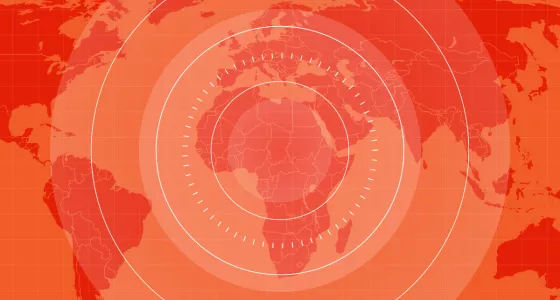War Child began working in Iraq in 2004 with activities in Baghdad in response to the U.S. led coalition invasion. Although the protracted conflict lasted until 2011, War Child remained in the country to address the growing needs caused by the war and support children in their recovery.
In 2015, we expanded into the Kurdistan Region. With offices in Erbil, Mosul, and Baghdad, we established our presence, offering education, protection, psychosocial support, and vocational training for children, youth, and caregivers. Our success has relied on close cooperation with local and international NGOs and government ministries.
In December 2021, the U.S. mission in Iraq officially ended. By 2023, the UN and other organisations shifted from a purely humanitarian response to a development-focused approach, marking a new, safer chapter for children in the region.
This means that local organisations and communities are focused on education, job opportunities, and strengthening local services so people can support themselves. War Child has supported these long-term efforts, helping to create stability and a safer future for children.
“We take great pride in the work War Child accomplished in Iraq”, says Flutra Gorana, War Child Alliance Middle East Director. “Our departure is a positive step, reflecting the improved situation in the country. We are especially proud of the meaningful impact we’ve had on children’s wellbeing and resilience, as well as the opportunities we’ve been able to provide through education and vocational training, together with our network of partners. The effects of these initiatives will be felt for years to come.”
A total of 47 projects were implemented across Iraq, including a protection and education project made possible by the United Nations' Education Cannot Wait initiative.
This two-year project, running from February 2022 to June 2024, aimed to improve access to education for children affected by the crisis. Activities took place in Fallujah and Ramadi, west of Baghdad, supporting 1400 children. The project also prioritised child protection and mental health support to provide comprehensive care.
Nine-year-old Suhaila from Al-Anbar Governorate was one of the children supported by the project. During a site visit, War Child staff noticed that Suhaila appeared isolated and fearful, avoiding interaction with facilitators. Further investigation revealed that she was struggling with the trauma of losing a sibling. Suhaila had developed a fear of leaving home, which led to her skipping school, while her family was struggling to meet basic needs.
To support Suhaila, our staff created a holistic care plan. She was referred to the International Organisation for Migration (IOM) for psychological treatment and joined mental health activities, such as drawing, to help express her emotions. Her parents attended awareness sessions on child neglect and children’s rights. Suhaila was enrolled in a cash assistance programme to support her family and ensure she could continue her education.
By the time of the follow-up visit before the new school year, Suhaila had shown significant improvement. “She tells me she feels safe now, and her fear has subsided,” said the caseworker. “She is making new friends and is eager to explore the world around her.
This is just one of thousands of examples of how War Child and our partners have supported children and their families over the past 20 years. As we leave Iraq, we know that our work with local communities and governments has helped protect and educate children, supporting them to heal and learn for a safer, brighter future.

